

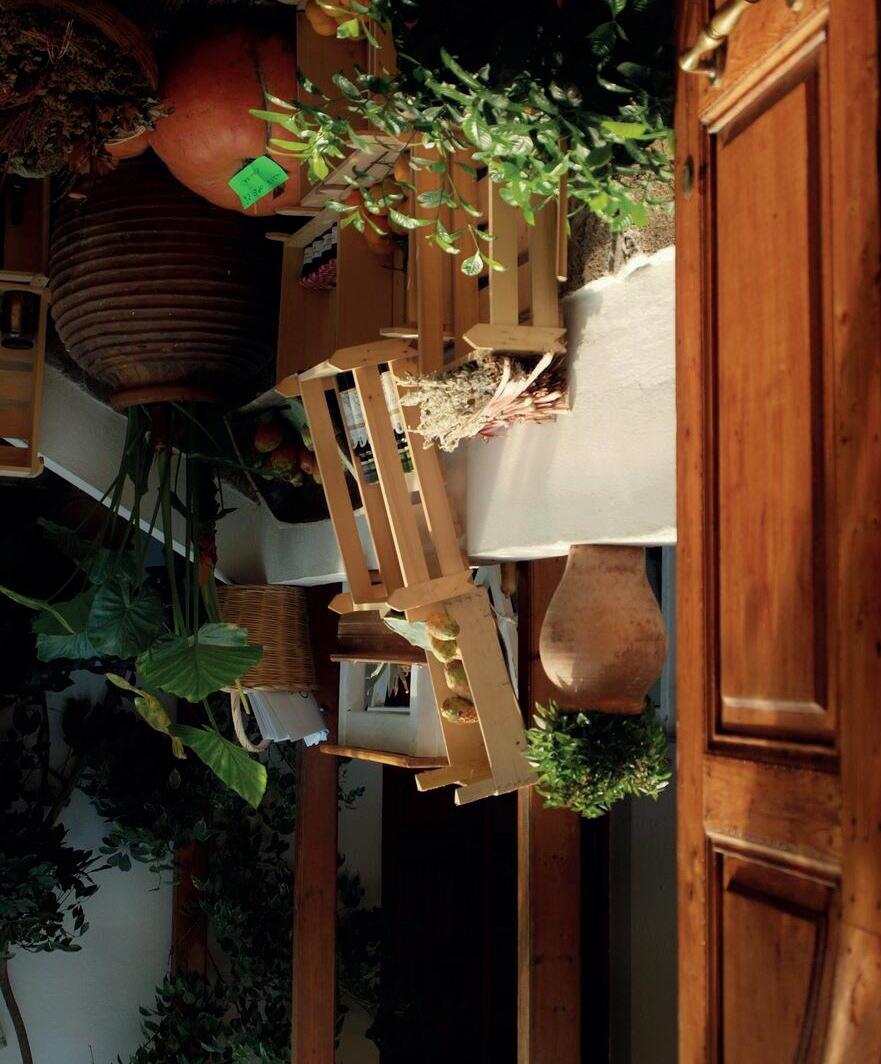




















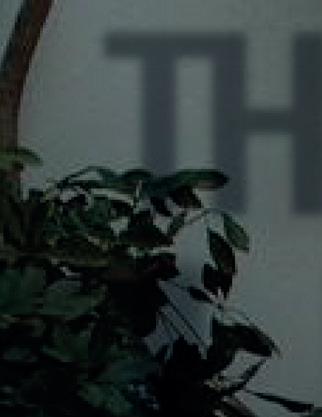


























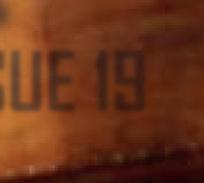

















































































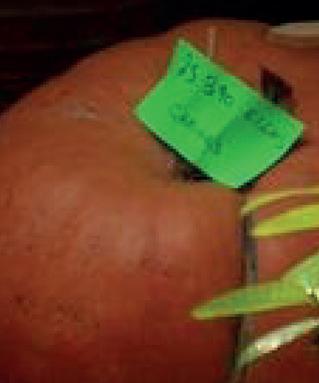










































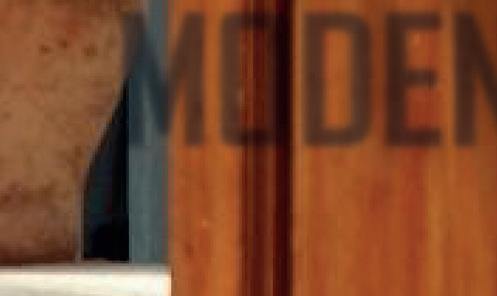


































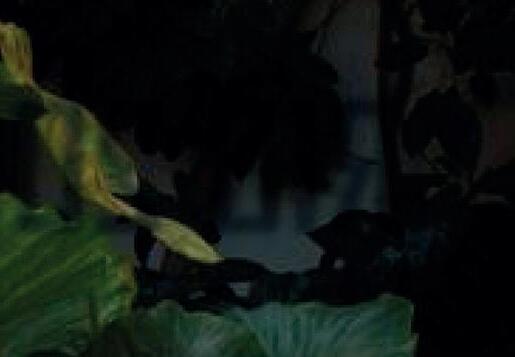























































































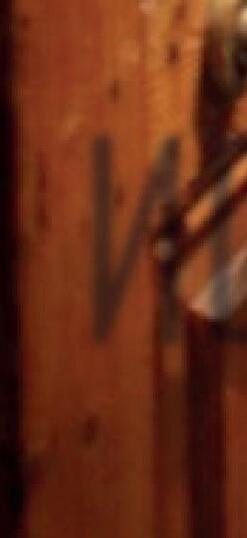






p.6 p.9 AUSTRIA MY YEAR ABROAD p.15 p.13 MODENA LA MIA CITTÀ BIUTIFUL INMIGRACIÓN EN ESPAÑA RIO 2016 A COUNTRY IN CRISIS p.3 DEUTSCHER BUCHPREIS THIS YEAR’S WINNERS 5TH ANNIVERSARY EDITION
Issue 19



FEATURED ARTICLE
CAPTURING A MOMENT IN IRAN
Justine Francfort writes about her solo travels in Iran and the cultural differences of an Islamic nation.
PAGE 17
THE LINGUIST TEAM 2016/17
CHAIR: KIA MARIE HUNT

SECRETARY: KATYA BROWNE
TREASURER: HENRY WAKELAM
CREATIVE DESIGNER: MARY
MCGOWAN
SOCIAL SECRETARY: NATALIE

ELLIOT
PUBLICITY OFFICER & DESIGN






















ASSISTANT: ZOE LUMSDEN

PROOF READER: SARAH
DANIELS
PROOF READER & GERMAN: RACHEL MORRIS
CURRENT AFFAIRS & PORTUGUESE: CONNOR HAINES
EDITOR’S NOTE
















¡Hola! Czesc! Üdvözlöm!
Welcome to Issue 19 of the UoB Linguist Magazine!
by Kia Marie Hunt
CULTURE: JENNY NICHOLLS
LIFE & STYLE: BEN HILTON
FOOD & DRINK: YANA PETKOVA
TRAVEL: STEFFI BALLMANN
FRENCH: LUCY HARKINS
RUSSIAN: ALEX CAVES
CHINESE: NINA MA
ITALIAN & CATALAN: OLIVER EDWARDS
P OLISH & UKRANIAN: CHARLOTTE SIMPSON










BULGARIAN: BORIS GENOV
SPANISH: EMILY DARBY
COVER PHOTO: Olli Smith: Rhodes, France.
ABOVE PHOTO: Mary McGowan: Cáceres, Spain.


Want to see your photo on the cover? Send us an email at linguist@guild.bham.ac.uk
The team and I are especially excited about this edition because it officially marks the 5th anniversary of the magazine. Getting a student led initiative and non-profit publication like the UoB Linguist up and running is a difficult feat, so the fact that the magazine has continued going from strength to strength for five years now is definitely a cause for celebration! That’s why you’ll find a special feature about our milestone anniversary on the back page of this issue, along with some details of our upcoming celebratory event.
Another reason to be enthusiastic about this latest issue is that it introduces yet another new language section and editor to our wonderful repertoire; please give a warm welcome to Boris Genov and the Bulgarian section! If you fancy giving this language a go, turn to page 18 where you can read an article by Boris about Bulgarian football.
Of course, our other editors have been hard at work to make sure
thiseditionis downof internationalevents,including







that, yet again, this edition is brimming with as much language and culture as ever…



Check out the Current Affairs section for a run -down of recent international events, including the disturbing ‘Killer Clown’ craze, and the controversial impeachment of Brazil’s president, Dilma Rousseff.
Amongst other interesting pieces, our Culture section brings you a review of Zurinaga’s The Disappearance of García Lorca, by avid film journalist Matthew Bruce. This issues’ Travel section allows you to visit Iran or explore the wonders of Japan without even leaving your seat, and in our Life & Style section, you will find some interesting snippets about life on a year abroad in Austria.
And those are just our English language sections; there are plenty of excellent articles to discover within our 10 foreign language sections. One of my personal favourites is Roberta Grella’s piece on her city, Modena; it was a bit of a challenge for me due to the fact that my level of Italian is basic at best, but it was definitely worth the read.
If you would like to join our team or simply receive some more information, don’t hesitate to contact us – as always we welcome new contributors!
November 2016
PAGE 3: CURRENT AFFAIRS

PAGE 5: CULTURE
PAGE 7: TRAVEL
PAGE 9: LIFE AND STYLE
PAGE 10: FOOD AND DRINK
PAGE 11: DEUTSCH
PAGE 12: FRANÇAIS
PAGE 13: ESPAÑOL
PAGE 14: CATALÀ and PORTUGUÊS

PAGE 15: ITALIANO
PAGE 16: 中文
PAGE 17: РУССКИЙ
PAGE 18: POLSKIE and БЪЛГАРСКИ
CONTACT US





If you would like to know more about our magazine, our writers or have comments to make about our articles then feel free to check out our Facebook and Twitter pages or email us. If you wish to read more articles check out our website. We’re always looking for new writers and contributors, so don’t hesitate to get in touch!
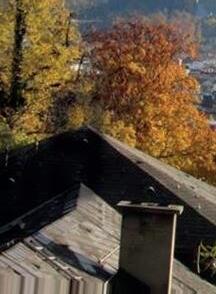
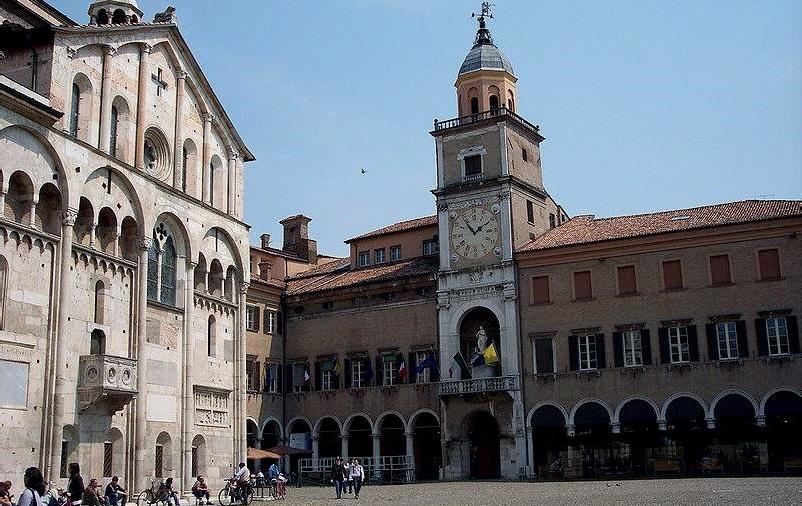




UoBLinguist_Mag


























































linguist@guild.bham.co.uk
























UoB Linguist Magazine
THEUOBLINGUIST.CO.UK UoBLinguist_Mag The
IN
ISSUE
THIS
THE ‘KILLER CLOWN’ CRAZE
By Charlotte Julian
Halloween appears to have come earlier and more terrifying this year, as the horrifying ‘Killer Clown’ craze has taken over the UK. A clown was first spotted in August by a young boy who claimed he had seen “clowns whispering and making strange noises” in the woods by his home in Greenville, South Carolina. However, this story is unfortunately just the beginning, as more clowns began to prank people and within weeks, the craze had made it to Britain, Australia and New Zealand.
Clowns were originally formed for comedic roles in theatre during the 19th and 20th centuries and were known for their outlandish costumes, colourful wigs and exaggerated makeup. These clowns have for many years been a major part of children’s birthday parties, providing entertainment for large audiences by taking on the role of a ‘clumsy fool’ who is unable to complete everyday tasks.
However, the image of clowns has since been changed forever and it is no longer a laughing matter. This disturbing epidemic is not showing any signs of slowing down. In the weeks leading up to Halloween, more and more pranksters
have taken to the streets, often holding deadly weapons, jumping out in front of cars, and approaching terrified children.
The ‘craze’ has spread right across the country, and it is not just children who are being targeted, as students have recently reported sightings of people masquerading as clowns and acting suspiciously in and around Selly Oak. This strange obsession will likely die down like most other crazes, but in the meantime, be vigilant if you’re out late at night!
RIO 2016: A WELCOME DISTRACTION FOR A COUNTRY IN CRISIS By

As the world watched eagerly, Rio stepped up to the plate and delivered a colourful, upbeat, quintessentially Brazilian Games. But whilst the sporting prowess and endless carnival music may have been a brief respite from the widespread problems engulfing the country, the newspaper headlines now return to addressing the corruption scandals, the dramatic downfall of President Dilma Rousseff, and an economy in free fall. Such a situation seemed inconceivable when Brazil was announced as the host of the next games; being chosen as a host appeared to illustrate the country’s success and economic prosperity.
Impeachment of Dilma Rousseff: What happened?
On the day of the opening ceremony, President Michel
Connor Haines


Temer was subjected to crowds of protestors booing him as he attempted to lift spirits ahead of the games. He had been in charge of the country for less than a week. Following a bitter political battle lasting several months, the then president Rousseff was removed from office by the Congress. Accused of corruption while the country was suffering, and of tampering with its finances to make her presidency look more successful, she was relieved of her duties on 31 st August, with Temer, leader of the opposition PMDB party, taking over on an interim basis. To this day, Rousseff proclaims her innocence, lambasting her impeachment as a “coup” by her political opponents. Her supporters have often lined the streets, singing her name – but equally vocal are her opponents, who blame much of the country’s recent misfortune on her, and for whom Temer represents the possibility of a new beginning.
Whether or not the impeachment was the correct decision, Brazil has a new president who must try to repair the economy and society, and Dilma Rousseff has disaffected supporters. The Olympic party is over, but Brazilians have woken up to a lasting hangover.
THEUOBLINGUIST.CO.UK 3
A CLICK AWAY By


Cyberspace is changing conflict
Saul Shimmin
Russian forces swarm alongside the Ukrainian border, Western Europe cowers beneath the noses of nuclear missiles positioned in Kaliningrad, and Russia bids its officials to come home and practice living in a bunker. Putin is pushing the world into madness, but why has he not pushed harder?
To many outside of Russia, Putin enjoys a domestic omnipotence unlike any other world leader. Despite committing Russian military forces on two separate fronts, provoking crippling economic sanctions against Russia, Putin remains beloved by the people.
Yet in many ways, Putin is weakening. Since returning to power for a 3rd presidential term, Putin has changed the vertical power system of governance.
Explaining the internal system of Russian governance would require a separate article. Simply put, Putin’s system of power no longer relays clear messages to the organs of the state, approving one idea or another. Instead, direction
billions, into bioweapons or nuclear weapons, when you can employ a group of hackers, who will in turn break into another country’s data networks, disrupt systems and so forth. State-sponsored hacks, even against foreign companies, empower the perpetrator through the act of intrusion. An example of this in real-life would be breaking into someone’s home, then waiting until they return, switch light on, and find you there waiting.
This logic is why North Korea attacked Sony’s computer system in retaliation for ‘The Interview’, a film mocking North Korean leader Kim Jong-un. It does not matter that Sony is not part of the U.S government, the hacking of Sony is power through intrusion, because if North Korea is capable of hacking a film company, what else can it do? Returning back to intruding in someone’s house: if they can
from the head of the state is vague, whilst simultaneously, Putin has empowered strongmen, called curators, to deal with certain areas. These strongmen often conflict with one another and Putin has no direct control over them, bar removing them from power.
Beyond a chaotic chain of command, Russia’s military modernisation is bankrupting the country at a time when Russia’s lifeblood – oil – continues to fetch a low price on the world market. In light of this, Russia’s current show of strength across the world is unsustainable, a bluff made desperately to fool other countries.

That is why, in a period of frayed relations between America and Russia over both Ukraine and Syria, Putin has turned to nuclear weapons, and more importantly, threatening to disrupt the American Presidential elections through hacking computer systems.

Cheap power
Cyberspace is a gift to any state that does not care for international rules, whether or not there are consequences for their people. There is no point to investing millions, even
break in once, they can do it again, and maybe this time they will do something worse whilst they are inside.
When cyberattacks have been committed so far, they have not been done with a military agenda in mind. Past attacks have caused disruption online, and stole troves of data, but they have yet to directly shut down key industrial systems, such as transport networks or power grids.
These kinds of attacks on an integral physical system have yet to be properly attempted, and would only be used as a precursor to outright conflict between two countries. We have yet to see the development, in that sense, of cyberwarfare, in which cyberspace becomes a true theatre of battle between countries. Cyberattacks are likely to continue in their current form, as a tool for internal propaganda and psychological warfare against a foreign country.
You can see the full article at http://theuoblinguist.co.uk/ category/en/current-affairs/

GUILD OF STUDENTS ‘O UTSTANDING OUTREACH 2015’! 4
Russia’s current show of strength across the world is unsustainable, a bluff made desperately to fool other countries
THE HAUNTED HEART OF EUROPE



Much has been said and written about Prague, where it’s not just the English who often go to have a few (or a few too many) reasonably priced drinks, as well as to enjoy the romantic sights. What few of the visitors know, however, is that Prague is believed to be one of the most haunted cities in Europe.
Once a mighty European capital, it is a place where many cultures and religions have clashed. As a result, its old streets and buildings are said to be haunted by various entities – headless, faceless or even naked ghosts, water goblins, demons and even the devil himself.

In the 16th century, the emperor Rudolph II made Prague his ruling city and, being interested in magic and sciences, he invited alchemists, astronomers, astrologists and inventors to work on projects there. They set up laboratories all around the city, mostly underground, and no one really knows what they were up to. What we do know is that they have left many mysterious symbols on buildings around the historical centre, and alchemists’ secret underground laboratories are still being discovered now and then by enthusiastic historians.
By Veronika Skřenková
There are several legends tied to specific places in Prague, such as the Jewish Quarter, where the Golem is believed to be hidden, the Charles Bridge, and the City Hall, which is, , guarded by a statue of the ghost of a faceless knight who haunts the area looking for true love. Also, the crown jewels are cursed: whoever tries to put the crown on their head will die shortly after. The last known victim was Reinhard Heydrich, who tried it on and was murdered a few days later.

There is no doubt, then, that although Halloween is not celebrated in the Czech Republic, Prague is certainly a fitting destination for an autumn trip should you crave something both romantic and spooky!
REVIEW: THE DISAPPEARANCEOFGARC Í ALORCA


 By Matthew Bruce
By Matthew Bruce
However, now under Franco’s dictatorship, the tensions of Spain’s past are still palpable, and soon Ricardo’s quest for answers becomes a dangerous one.

This film is not particularly well known, unless perhaps you’re a Lorca aficionado. More’s the pity, since this is a gripping work. Andy Garcia takes the role of Lorca. His Cuban roots means he has enough Spanish in him to execute the role well. Also worth a mention is Jeroen Krabbé, who takes the role of the dubious Colonel Aguirre. Any James Bond fan will know Krabbé as the bumbling General Koskov from The Living Daylights (1987).
Screenshot from the film

“It was five in the afternoon… It was exactly five in the afternoon.” These opening words come to haunt Marcos Zurinaga’s moving Spanish/English co-production, The Disappearance of García Lorca (1996), a partlyfictionalised film attempting to uncover the truth about the assassination of Federico García Lorca. Lorca is one of Spain’s most respected and yet controversial authors, who was killed by the Civil Guard at the turn of the Spanish Civil War in 1936.
The film tells of a journalist, Ricardo, a Spanish exile who decides to return to Granada some 20 years after Lorca’s death in an attempt to uncover the truth about the demise of his literary hero.


The film, in a broader sense, is about time and memory. The recurring motif of the clock, which ties in with the quotation “Five in the afternoon” from Lorca’s “Lament for the Death of Ignacio Sánchez Mejías” recalls other European films, such as Schlöndorff’s The Tin Drum (1979).
The film’s direction by Zurinaga is inspiring, and the soundtrack by Mark McKenzie is both sad and beautiful. This is a very understated film; consequently one can only hope for its resurgence.



5 THEUOBLINGUIST.CO.UK
Image copyright Triumph films
AND THE WINNER IS...
WINNERIS...


 By Jenny Nicholls
By Jenny Nicholls
The world’s biggest international book fair, the Frankfurter Buchmesse, kicked off last month with the announcement of the winner of the German Book Prize (Deutscher Buchpreis). This prestigious literary award is the media highlight of the publishing year in Germany and is comparable to the UK’s Man Booker Prize or the French Prix Goncourt.
The €25,000 prize money was awarded to Bodo Kirchhoff’s ‘Widerfahrnis’ (an unusual word that translates roughly to ‘Encounter’). The book follows two lonely people who take a spontaneous journey together to Italy and unexpectedly discover love. However, just when they start to believe that they could live a new idyllic life, the reality of the world comes crashing down upon them in the form of a young refugee girl that they encounter in Sicily. The other shortlisted books were:
‘Fremde Seele, dunkler Wald’ (‘Dark forest, foreign soul’) by Reinhard Kaiser Mühlecker, an exploration of helplessness and redemption following a soldier’s return home to Austria, and his brother’s efforts to run the family farm.
‘Skizze eines Sommers’ (‘A Sketch of Summer’) by André Kubiczek, a coming-of-age story following four boys during the summer of 1985 in the former East Germany.
‘Die Welt im Rücken’ (‘The World at Your Back’) by Thomas Melle, an autobiographical tale of living with bipolar disorder.



‘Ein langes Jahr’ (‘A Long Year’) by Eva Schmidt, a series of restrained and melancholy episodes from the perspectives of a variety of city residents.
‘Hool’ by Philipp Winkler, an unflinching look at the violence, solidarity and brotherhood of life in a gang of football hooligans.
As seems inevitable with all literary awards, there is much debate and criticism surrounding the Deutscher Buchpreis every year. Some argue that the prize monopolises media attention, thereby narrowing the public’s view of contemporary German literature down to the twenty longlisted books and leaving other deserving authors in the dark. The process of selecting the long- and shortlists has also come under fire for being ‘undemocratic’, and the jury has been criticised for choosing books for the purpose of creating a ‘literary talent show’ that ignores the preferences of a general readership.
However, the purpose of book prizes in general is manifold. All book prizes have to strike a balance between being literary recognition and being a marketing tool – they cannot be one without the other. When the Deutscher Buchpreis was established in 2004, it was for a number of reasons: to give a boost to the book trade, to lend German fiction a certain gravitas, and to shine a spotlight on German-language novels in the hope of heightening their international recognition. The prize can make commercial successes out of books that may have otherwise been overlooked by the general public, including providing exposure for those published by smaller companies without a huge advertising budget. The books considered for the prize are also significantly more likely to be chosen for translation by foreign publishing houses, and there is therefore a big impact on the representation of Germanlanguage books on the shelves in other countries.



On the other hand, success can arguably become confined to the shortlisted books, to the detriment of those not in the running for the prize – there is a danger of implying that the nominated books are the only good books to have been published that year, whereas it has to be recognised that, even with a consensus of seven judges, the perceived value of a book is still highly subjective. One thing is for sure: I don’t envy the judges the near impossible task of having to pick just one winner from such a varied selection of books!

GUILD OF STUDENTS ‘O UTSTANDING OUTREACH 2015’! 6
The Deutscher Buchpreis shines a spotlight on German language novels in the hope of heightening their international recognition
The finalists of the German Book Prize
CAPTURING A MOMENT IN IRAN


CAPTURINGAMOMENT
Last spring, I left France to spend almost two months in Iran, alone, to learn Persian. It was the first time I had travelled on my own, the first time I had lived in a dormitory with a curfew at 10pm, and the first time I had to deal with an Islamic Republic. It was the most challenging and amazing experience of my life so far. I hated Iran; I loved it at the same time. Above all, it enriched me as only travels can do. This is not a political statement, I don’t have any advice either: I would merely like to share one of my best memories of the trip, one which epitomises both the beauties and contrasts of life in this country.


Let me set the scene: Kachan, a three-hour bus journey south of the capital, Tehran. It’s a little, historical, hot city which is battered by sand winds during spring and summer.
I was there for the week-end (Thursday and Friday in Iran), living in a small hotel lost in a labyrinth of narrow streets, where I unexpectedly met other foreigners.
We spent the day together, being shaken in a very Iranian mini-bus: no seat belts, a driver with a fondness for speeding, a radio bellowing very loud love songs. But most
 By Justine Francfort
By Justine Francfort
Iranian of all was that the driver with impressive dark eyebrows and a huge moustache offered us ice -creams at the end of the day. The Iranian sense of hospitality is certainly not something I will forget in a hurry.
It is later this same day that my memory starts. Night is falling and we are walking back to the hotel under the arches of the street arcades until we reach a tiny wooden entrance. We pass through the door and remove our veils. You learn it quickly: covering your head each time you put a toe outside and nonchalantly uncovering your hair when you come back inside. A door becomes a gate between two worlds: the public and the private, the masculine and the feminine, the world of the Islamic Republic and the world of personal freedom.
For us, this personal freedom was sharing a glass of fresh
rose water whilst lying on the hotel’s rooftop. Our eyes lost in the dark immensity of the sky; we were surrounded by a slow, deep, resonant call for prayer. After it stopped, a minute of complete and vertiginous silence followed. Then, tenuously at first, a nostalgic melody of Iranian traditional music made itself heard in the darkness. Iran was simultaneously offering us its Islamic present blended with its Persian heritage. In a similar way, this country of contrasts can, at other moments, offer you a blend of its harshest sides with its most astonishing ones.
Side by side in the night we were all full of conflicting feelings: calmness and loneliness, beauty and lassitude, delight and homesickness. If you have already travelled, you know the preciousness of these intense and ephemeral moments; the eternal beauty of vanished instants…if not, go create, wherever you can, these undying memories.
7 THEUOBLINGUIST.CO.UK
(Credit: https:// commons.wikimedia.org/wiki/ File:Mate -gourds.jpg)
...calmness and loneliness, beauty and lassitude, delight and homesickness
EARTHY PARADISE

 By Sarah Wei
By Sarah Wei
Hidden up on the hills of Northern Okayama Prefecture in Japan, a fairytale-like village rests among the scenic mountainsides. Away from the bustling and cosmopolitan cities such as Tokyo and Osaka, the village of Nishiawakura ( 西粟 倉村) provides a much more serene and simple rural lifestyle.
Ever since I saw my first Studio Ghibli film, I knew I had to visit Japan and experience it for myself. The village reminded me of My Neighbor Totoro (1988) and Princess Mononoke (1997) As if in some sort of fairytale, up on the hills towards the forest, there lies a wooden house, almost passable if not for the large wooden sculpture of Totoro guarding its entrance. Grandpa Fukushima (as the villagers so dearly call him) built this house originally for his grandchildren, but as time passed, it has become a playhouse for the village children.
As you enter the house, you can spot little toys and sculptures of the most beloved Japanese cartoon characters. In the backyard, there is a pond for the children to catch tadpoles and fish. Through the hands of Grandpa Fukushima, the wooden toys around the house come to life as they move and light up. Grandpa Fukushima will seemingly never cease to spread his love, and not only for the children of the village, as he intends to
build an outdoor theatre stage in his backyard to entertain the villagers.
Despite the village being tucked away between the valleys, it is by no means a stranger to the Western world. Three Western Japanese families reside in the village where they each bring with them their own culture, French Bakery and Yoga. Although I spoke broken Japanese, the village welcomed me and was patient with me. Chatting with the elders on their porches provided me with history lessons that I would never learn in a classroom, and I enjoyed their hospitality as they provided hot tea and desserts. I was certainly able to experience the more traditional Japanese way of life - simple yet happy.
Being a small village of roughly 1000 inhabitants, the people live as a collective community. It is impossible to get lost here. After having lived in Kyoto, the first thing I asked for when I arrived in Nishiawakura was a map. The villagers simply laughed and said: “You don’t need one. There’s only one road!” Every morning promptly at 6 a.m., you can hear music throughout the village from the speakers signaling the beginning of a new day; different music at 12 p.m. and 5 p.m. to remind the workers in the field it is time for lunch and to go home and last, a final song to signal the end of yet another day at 10 p.m.

This idyllic village is far removed from cities and their crowded streets, and for this reason it retains its traditional culture. Whether you want a romantic retreat, adventure hiking, spiritual tranquility or are just passing-by, Nishiawakura is a village not to be missed.



GUILD OF STUDENTS ‘O UTSTANDING OUTREACH 2015’! 8
WHY AUSTRIA MIGHT BE (UN)SUPRISINGLY GOOD FOR YOU


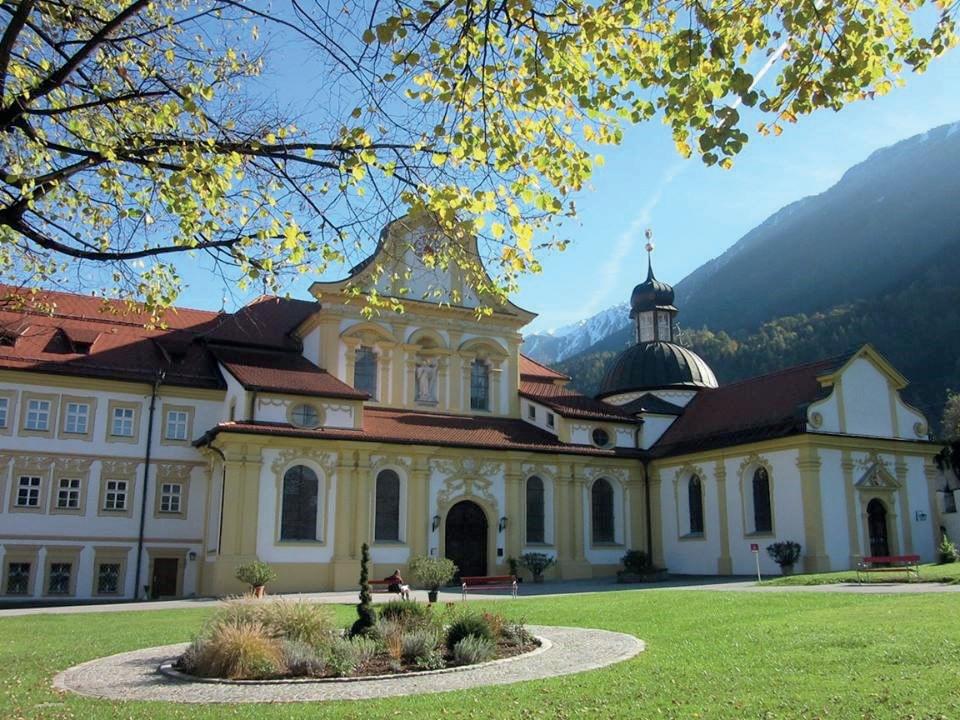
Somewhere along the long and enjoyable YA application process I ticked the box that said Austria, not the box that said Germany. It turned out to be an excellent decision (although what motivated me to make it escapes me entirely). I’m here to give you the motivation to make that same decision for yourself.






The first reason, and probably the most obvious, is that Austria is a singularly gorgeous and enchanting country, no matter which of the nine Bundeslaende you end up in. This country looks like it was designed by Bob Ross. (Even with my qwatsche phone camera, my Instagram was actually impressive with Austrian landscapes and daytrips to Italy for subject matter.)

Not to mention the countless cities like Salzburg and Vienna, which are so rich in culture and history, and full of beautiful old buildings which will make you crick your neck trying to look in every direction at once. Trust me when I say that living in Austria never gets old. Every day is stunningly pretty, and I can tell you from personal experience that if you’re having a bad day, or difficulties settling into your year, NOTHING can lift your spirits more than taking a bus and a cable car up to the peak of a 2637m mountain and drinking a beer in the clouds. (#perspective)
Which brings me to my next reason: The Alps. There’s a good reason that the Germans make Austria their #1 Holiday destination. The ski culture in West Austria is infectious. Whether you can actually ski or not, it’s worth taking
By Catrin Westerland


advantage of the snow and giving everything a go even if you end up spending the whole day in the Bar at the top of the mountain chatting up a local instructor. There are also tonnes of stunning lakes to swim in (if you’re brave enough), hikes to go on, and charming little villages full of very friendly (if incomprehensible) Tiroleans.
My last reason is that Austrians are about as up tight as the Italians they share a region with. (The only down-side of this is that if you want to go to the bank, or to a supermarket, or anywhere useful on the weekend, or indeed after 4pm, you’ll find that nobody is in work.) None of that legendary German efficiency or work ethic. Especially in Tirol, the indulgent culture and abundance of Catholic holidays means that you’ll have lots of time to sit in a café sipping a Brauner (or a latte, if that’s your thing) and have a laugh with the waiter about how ill-suited your edgy shoes are to the 5ft of snow you’ve had to wade through to get there. I was thoroughly surprised by how friendly and welcoming everyone was, and how relaxed and genuinely good company they were.
Overall I think Austria is a perfect home from home for anyone looking for an enjoyable year abroad. It’s still a radically new and exciting environment, but I don’t know anyone who managed to walk away from Innsbruck at the end of the year (or even semester) without having their heart broken by the fact that they would never again live somewhere quite so beautiful.
THEUOBLINGUIST.CO.UK 9
DISCOVER AN INTERNATIONAL SELECTION OF BOUTIQUE BEERS… IN BRUM!
Whether you’re an absolute beer aficionado, a part-time enthusiast, or you just like to try something new every now and then, it turns out you don’t need to travel very far to get your hands on an international selection of brewed beverages…
In fact, you only need to go as far as Digbeth!

Nestled into the heart of Birmingham’s creative quarter, Clink Beer is an independent bottle shop and tap room, which is home to a constantly rotating and evolving selection of beer.
Below is a sneak-peak at what’s on offer: five quirky beers from some of the best breweries and microbreweries around the world,. Clink has over 200 bottled and canned craft beers available to drink in or take out, so it was very difficult to choose just a few to highlight in this feature!
Peanut Butter Milk Stout (California, USA)
From the curiously named Belching Beaver Brewery, this creamy concoction really conjures up images of that popular wizarding beverage butterbeer, except a whole lot nuttier! Described as ‘dark chocolate Reese’s in a glass’, it apparently goes down well with a scoop of vanilla ice cream- which we just can’t wait to try out!
Belgian Ale (Bodegraven, Netherlands)
With a name that translates to ‘Beautiful & Ruthless ’, it’s hard not to be seduced by this Belgian strong ale from Brouwerij De Molen. A medley of dark and delicious aromas including cocoa, brown sugar, plums, black cherries and coffee, it combines both the sweet, spiciness of the Belgian style Quadruple and the roasted, full bodiedness of the Imperial Stout.
By Kia Marie Hunt
Sunday Easy Pale Ale (Munich, Germany)
Think cloudy amber with thick white froth, and subtle, malted caramel and grassy citrus flavours. And Union, brewers of ‘Modernist Bavarian craft beer’ have created a pale ale that’s balanced, gently spiced, and easy to drink, just like a Sunday morning.

Sur Amarillo Sour Pale Ale (Copenhagen, Denmark)
Founded by Tobias, Tore and Mikkel, three school friends with a keen interest in creating quality beer, To Øl is what you might call a ‘gypsy brewery’, that being it doesn’t own its own brewing facilities but lends in at other breweries with spare capacity. But this doesn’t interfere with taste, oh no! Their Sur Amarillo is a fine example of that- a partly sour pale ale that packs a fruity punch.
Why Kick A Moo Cow New Zealand Pale Ale (Bristol, UK) While worldwide beers are great and all, we can’t forget to include a brew from good old Blighty! Although this big malty number is a New Zealand pale ale, and its name refers to the generic New Zealander term for any non -specific rural town ‘waikikamukau ’, and it was actually brewed not so far away, by Arbor Ales , in Bristol!
Need an excuse to visit Clink out one or two (or 10!) beers from its tempting selection? You’re welcome to join us at our party to celebrate

UoB Linguist

Anniversary on the 2nd December; Clink will be hosting! (See back page for more details)





GUILD OF STUDENTS ‘O UTSTANDING OUTREACH 2015’! 10
LUST AUF BACKEN?





Wenn ihr mal in Deutschland wart, könntet ihr euch vielleicht an die schönen Bäckereien, Konditoreien und Cafés – und die wunderbaren Düfte – erinnern. Wenn wir Briten in Deutschland leben, vermissen die meisten von uns vor allem Tee und unsere Cadbury-Schokolade. Es gibt für die Deutschen, die in Großbritannien leben, auch eine Marktlücke, und zwar für deutsches Brot und andere Backprodukte. Holt euch eine Tasse Kaffee (oder Tee!) und ein Kuchen, und lest weiter für vier leckere aber leider wenig bekannte deutsche Süßspeisen!


1) Der Bienenstichkuchen
Dieser klassische Nachtisch ist aus Hefeteig gefertigt und mit Vanillecreme, Buttercreme oder Sahne gefüllt. Der Kuchen wird mit einem knusprigen MandelBelag gedeckt und kurz vor dem Backen wird er mit Honig bestrichen. Die Herkunft des Namens ist nicht klar, aber laut einer Legende hat dieser Kuchen eine Biene angelockt, die den Bäcker gestochen hat. Normalerweise kann man ein Stück Bienenstichkuchen in jedem Café oder Bäckerei finden, aber viele Deutsche glauben, der absolut beste Bienenstichkuchen wird in der Küche ihrer Oma gebacken.
2)Die Prinzregententorte Es wird oft behauptet, diese hervorragende Süßspeise sei der Stolz der bayerischen Konditoreien. So wie die Sachertorte für Wien – die Hauptstadt Österreichs – soll diese Torte eine besondere Bedeutung für München haben. Benannt nach Prinzregent Luitpold, der im Jahr 1886 Prinzregend von Bayern war, besteht die Prinzregententorte aus sieben sehr dünnen Biskuitböden, die mit Schokoladenbuttercreme bestrichen und aufeinandergesetzt werden. Danach wird die Torte oft mit Aprikosenmarmelade
By Rachel Morris
bestrichen und dann mit dunkler Schokolade überzogen. Eine Prinzregententorte kann selbstverständlich sehr zeitintensiv sein, aber sie sieht sehr beeindruckend aus!

3)Die Donauwelle




Die Donauwelle ist ein leckerer Blechkuchen mit Sauerkirschen, Kakao, Schokolade und zarter Buttercreme, der sehr beliebt in Deutschland und Österreich ist. Wie ein Marmorkuchen wird heller und dunkler Teig so gemischt, sodass ein schönes Muster zu sehen ist, das eine Welle des Flusses Donau andeuten soll. Mit einer Gabel und Schokoladenglasur wird der Kuchen wellenartig verziert. Laut Rischart, einer berühmten Bäckerei und Café in München, ist dieser Kuchen „eine Welle des Genusses“.


4)Apfelstreuselkuchen
In einer Liste deutscher Kuchen darf ein fruchtiger Obstkuchen nicht vergessen werden. Dieser Klassiker wird mit knusprigen Streuseln, saftigen Äpfeln und Zimt gemacht, um einen traditionellen Geschmack zu schaffen, egal ob kalt von einer Konditorei oder warm aus dem Ofen. Es gibt viele Varianten von diesem Blechkuchen; man kann Äpfel gegen Pfirsiche, Pflaumen, Beeren oder Kirschen tauschen. Es lässt sich sagen, ein Stück Apfelstreuselkuchen ist besonders gut für Herbsttage wie diese.
Es ist also klar, Backen ist etwas Besonderes in Deutschland und hoffentlich seht ihr, dass es in Deutschland nicht nur Stollen, Strudel und Schwarzwälder Kirschtorte gibt. Wenn unsere Great British Bake Off einmal enden würde, hoffe ich, dass wir auf ein Great German Bake Off setzen können!
THEUOBLINGUIST.CO.UK 11
LA BELLE PROVINCE DE QUÉBEC
Après avoir étudié la province de Québec , il y a deux ans dans le cadre de mes études en France , je trouve la culture québécoise vraiment fascinante. Un de mes plus grands rêves serait de visiter ce pays ! Le Québec est la plus grande province canadienne, elle est composée principalement de personnes francophones mais il existe aussi des anglophones. C’est à Montréal que l’on trouve le plus de bilingues. Le mode de vie et l’histoire du Québec nous reste assez inconnu car lors des cours de Français on a étudié prioritairement la culture de cet hexagone ,c’est-a-dire la France métropolitaine. Dans cet article, je souhaite un peu cultiver mes lecteurs sur le Québec !


La raison pour laquelle la langue officielle du Québec est le Français , s’explique grâce à l’histoire de la province. Il faut savoir qu’au début, les autochtones peuplaient le territoire sachant que leurs langues courantes étaient les langues autochtones. Cependant, en 1534, l'explorateur français Jacques Cartier, a prit possession du Québec au nom du roi de France néanmoins, après la conquête britannique en 1759, le Québec devient une colonie britannique. C’est pour cette raison que la langue et la culture ont une influence anglaise.
 By Emily Kidner
By Emily Kidner


quatre saisons… Le début du printemps ressemble fortement à l’hiver et généralement, c’est une saison pluvieuse et fraîche. De plus, l’eau d’érable commence à couler et les Québécois fêtent l'arrivée du sirop avec la musique, la danse et les délices de l’érable. L’été est doux et ensoleillé avec beaucoup de festival. Une saison parfaite pour voyager au Québec ! Il y a beaucoup de choses à faire en plein air. Par exemple, on peut pique-niquer avec les vues magnifiques sur le fleuve Saint-Laurent jusqu’à la promenade Samuel-De Champlain.





Aujourd'hui « le franglais» (la langue française fortement anglicisée) devient de plus en plus populaire. Par exemple, les français disent «C’est vraiment bizarre!» mais au Québec, on dirait «C’est weird en masse! ». Les mots ont également des significations différentes en France et au Québec. Par exemple, « la blonde » signifie une petite-amie au Québec, mais en France cela signifie simplement une femme avec des cheveux blonds. Malgré ce mélange d'influences franco-anglaises, la plupart des Québécois restent fiers de leur héritage , il y a même ceux qui craignent l’anglicisation de la société. Il existe des lois pour protéger la langue française telle que «La Charte de la Langue Française ». En revanche, certaines personnes (particulièrement les jeunes) croient qu'un mélange de langues et d'influences est une source d'enrichissement et penseraient qu’imposer des lois sur la langue peut être un peu démodé. Il semble que les débats ne finissent jamais!


Visiter le Québec a une optique différente en fonction des
En automne, chaque année, un grand nombre de touristes visitent la région afin de marcher en forêt et d’admirer les paysages colorés. En hiver, le Québec a des températures froides et la neige tombe abondamment mais la vie continue pour les québécois comme à leurs habitude ! De plus, afin qu’ils puissent se déplacer, les Québécois utilisent leurs motoneiges qui rendent plus facile leurs trajets!
En plus, les touristes peuvent visiter l'Hôtel de Glace, une œuvre d'art entièrement conçue de glace et de neige ! Il y a aussi le Carnaval du Québec qui a plein d'activités pour tous: les spectacles, le patinage, les sculptures sur neige, et bien sûr, le “Bonhomme Carnaval”, c’est-a-dire le symbole officiel de l'événement ! Alors malgré le mauvais temps, l’hiver est une des meilleures saisons pour visiter le Québec. Pour conclure, le Québec offre des aspects fascinants qui contrastent la culture Française métropolitaine ! Alors, si vous cherchez une expérience unique, visitez la belle province de Québec !
GUILD OF STUDENTS ‘O UTSTANDING OUTREACH 2015’! 12
...le Québec offre des aspects fascinants qui contrastent la culture Française métropolitaine
Image copyright George Worrall
¿BIUTIFUL? LA PREGUNTA DE LA INMIGRACIÓN EN ESPAÑA
En este momento estoy estudiando una película extraordinaria, Biutifu l. Javier Bardem interpreta el papel de Uxbal, un padre agonizante que, en sus últimos años, intenta dejar un legado a sus hijos. Sin embargo, Innaritu, el director, yuxtapone éste sufrimiento al de las vidas marginales de los inmigrantes, que se matan trabajando, explotados por el personaje de Bardem en las fábricas, y que viven hacinados y mal pagados. A pesar de que este contundente fondo abre os ojos al espectador, Innaritu nos hace compadecernos de Uxbal y su camino espiritual y ‘biutiful’. En comparación, las vidas de los inmigrantes son vidas sin sentido.
Quizás os estéis preguntando, ¿por qué hablar de una película que no tiene relación con nada de lo que nunca he oído? Pues porque, en mi opinión, la invisibilidad de los inmigrantes que se puede ver en Biutful es una metáfora muy importante para considerar la realidad de la inmigración en España.




Durante la última década, España ha recibido más de 3 millones de inmigrantes, y los inmigrantes constituyen más del 10% de la población actual. No obstante, se debe destacar que la inmigración y la integración son dos cosas distintas, y puede ser que un inmigrante viva en España pero no se sienta español. Con la tensión de la crisis económica y la tasa de paro por las nubes, muchos españoles echan la culpa a los inmigrantes. Incluso el gobierno los criminalizó en 2008, cuando Zapatero amenazó con expulsar a los que no trabajaran y dijo que tenían que aprender español. Esto no solo mina los problemas que los inmigrantes puedan tener con la integración por causas como el racismo o la xenofobia, sino que también supone que todos los inmigrantes sean marginados y fracasados, igual que los reflejados por Innaritu en Biutiful.
El tema








¿Qué significa ser español?


De esta manera, el tema de la inmigración se transforma en una paradoja. ¿Qué significa ser español? ¿los inmigrantes deben seguir los estereotipos españoles? Pero al hacer esto, la diversidad se reduce y se aumenta la xenofobia. El tema de la hostilidad con respeto a los inmigrantes empeoró en 2004, después de los atentados terroristas en Madrid. Desde entonces ha habido un aumento de la violencia, el abuso y los asaltos verbales. ‘Mucha gente considera a los


 By Emily Darby
By Emily Darby
musulmanes como sospechosos, por eso tenemos que dedicarnos cada día a probar que somos buenas personas’ dice Mohamed Kamal Rahmouni, el presidente de la Asociación de Trabajadores Inmigrantes Marroquíes en España. El problema en España es que no existe un equivalente a la Comisión para la Igualdad racial que tenemos en Reino Unido. Como resultado, se estima que más de 1.000 ataques racistas ocurren cada año, pero el Consejo Nacional de Poder Judicial ha admitido que no se toma nota de los incidentes racistas y que no existe un registro oficial. Eso puede confirmar la falta de persecución del racismo y la criminalización de los inmigrantes. Otra vez debo subrayar como Biutiful capta eso perfectamente, cuando la policía detiene un inmigrante senegalés y se enfrenta a la deportación pero su cómplice español todavía está libre.
Entonces… ¿qué es el futuro para los inmigrantes en España?
El Brexit tuvo un impacto decisivo en la elección Español este junio. El Partido Conservador sacó provecho de la incertidumbre de los españoles y el Partido Socialista fue decepcionante. Sin embargo, parece que el gobierno está dando la bienvenida a los refugiados. De hecho, la justicia para los inmigrantes está en la agenda de la nueva política espanola:
Después del Brexit, el candidato de Podemos, Pablo Iglesias, dijo que ‘Debemos cambiar de rumbo. De una Europa justa y solidaria nadie quería irse’.

THEUOBLINGUIST.CO.UK 13
de la inmigración se transforma en una paradoja.
Image copyright Focus Features International
ELS CASTELLS
By Monica Lopez Nistal


Una tradició molt enraigada a Catalunya són els castells. Es tracta de torres humanes on els participants estan dempeus sobre les espatlles dels del pis de sota. La part de baix del castell s’anomena «la pinya». Arreplega a molta gent que ha de suportar el pes del castell. A dalt de tot puja l'enxaneta, un nen o nena petita. Un cop a dalt, ha d'alçar el brac, el que indica que el castell s’ha completat. Però aquí no acaba tot. Llavors s’ha de desmuntar, i fer-ho sense caure és igual d’important que muntarho. El castell més gran que s'ha carregat ha estat de deu pisos. Encara que hi pot




semblar una activitat de molt risc, té una sinistralitat i una taxa de lesions més baixa que esports com el futbol. Una de les característiques dels castells és que s’hi participa desinteressadament. Els castellers no reben cap remuneració econòmica i no existeix la professionalitat. A més, gent de totes les edats en pot formar part i moltes vegades famílies completes són membres d'una colla o grup casteller. Tot això fa que sigui una activitat molt inclusiva on tothom és benvingut i on es promouen valors com l'esforç, la superació, el treball en equip i la cooperació.
Cada barri o poble té la seva colla castellera i fan competicions entre ells per veure qui carrega el castell més difícil. També es pot gaudir dels castells a les festes populars, on es carreguen com a espectacle pels veïns. Si alguna vegada hi aneu per Catalunya, no perdeu l'oportunitat de veure carregar un castell en directe, ja que emociona i deixa sense alè.




LISBOA TEM TUDO By Marie


 Craus
Craus




Durante as férias de verão, fui a Lisboa para fazer um curso intensivo de português na universidade, e posso dizer que a minha experiência lá foi melhor que pude imaginar. No entanto, quando cheguei, não gostei. A cidade era enorme e assustadora, e os taxistas não conheciam nunca o meu endereço. Durante dois dias estava perdida mais vezes que não estava, e não quis falar com os portuguêses porque estava com medo de cometer um erro. Contudo, graças aos meus companheiros do meu apartamento pequeno, tudo melhorou rapidamente. Foram muito atenciosos e amigáveis, e frequentemente dançávamos, cantávamos e bebíamos até muito tarde da noite. É possível que adorei Lisboa simplemente porque eles moram lá.



A comida também era fantástica. Todos os dias, quando as aulas terminavam, eu e alguns colegas íamos à cantina para almoçar. Houve todos os tipos de comida e todos eram
deliciosos! As refeições eram grandes, mas o custo foi sempre muito baixo. Obviamente, isso foi ótimo porque sou um estudante, então não tenho muito dinheiro. Eu gosto de comer, então, para mim, Lisboa era como um sonho. Claro, devo também mencionar os pasteis de nata, porque são muito importantes. Um dia, fui a Belém com um dos meus companheiros da casa. Comemos os pasteis de Belém e eram tão deliciosos que quase morri. Mas, na minha opinião, a melhor parte de Lisboa é que o que quiser fazer, poderia fazer. Se o fado lhe interessa, pode ouvir-lo. Também pode visitar muitos museus e miradouros diversos e interessantes, se isso lhe interessa. Mesmo se gosta de fazer uma caminhada, há uma variedade de parques naturais. É verdade que Lisboa é um pouco assustadora, mas como a comida é tão deliciosa e as pessoas tão amigáveis, e existe a possibilidade de fazer tudo, é impossível não apaixonar-se por essa cidade.

GUILD OF STUDENTS 14
LA MIA CITTÀ: MODENA

 By Roberta Grella
By Roberta Grella





Spesso quando si parla dell’Italia, si nominano città famose e importanti come Roma, Milano o Venezia. Io, invece, voglio parlarvi della mia città: Modena. Modena si trova nella regione Emilia-Romagna ed è capoluogo di provincia con quasi 185.000 abitanti. I primi ricordi legati alla mia Modena risalgono a quando avevo circa dieci anni e mia zia Teresa mi portò a visitare la Ghirlandina, la torre che affianca il Duomo. Mi ricordo di aver salito tantissimi scalini, tutti in pietra, per raggiungere poi il luogo da cui si può vedere tutta la città. Per i miei occhi di bambina mi sembrava incredibile poter vedere tutta Modena dall’alto. Ancora oggi quando parcheggio l’auto in via Emilia Ovest e raggiungo il centro camminando a piedi, resto




anni dalla famiglia d’Este che da Ferrara si trasferì a Modena nel 1598. La collezione estense contiene opere di Correggio, Bernini e un ritratto che Francesco I d’Este si fece dipingere durante un suo viaggio in Spagna dal pittore spagnolo Velazquez. A Modena una delle tradizioni che preferisco è quella di carnevale in cui la maschera di Sansone insieme alla moglie Pulonia si affaccia dalla terrazza che da su Piazza Grande e parla ai modenesi presenti strettamente in dialetto modenese. Piazza Grande non può restare innominata, la piazza principale della città in cui si trovano i simboli di Modena: il duomo e la Ghirlandina; questa piazza accoglie sempre i suoi cittadini in tantissimi eventi. Proprio quest’anno ho partecipato al festival della filosofia, che si tiene tutti gli anni a Modena e provincia, durante un caloroso pomeriggio di Settembre. La piazza gremita di persone, sedute o in piedi, ad ascoltare Michela Marzano, una delle più importanti scrittrici italiane contemporanee, che spiegava il management dell’esistenza. Bellissimo.
Modena è una città che vive della sua storia e delle sue tradizioni.
affascinata dalla bellezza della Ghirlandina bianchissima che spunta tra i tetti delle case. Un’altra cosa che caratterizza la mia città e molte altre città emiliane sono i portici, un tipo di architettura primariamente utilizzata in Egitto e poi utilizzata in Italia. I portici per me rappresentano una parte essenziale di questa città, in cui vi sono tantissimi negozi, ristoranti e gelaterie.
Modena è una città che vive della sua storia e delle sue tradizioni.
La galleria estense e il museo lapidario presenti al Palazzo dei Musei sono uno dei fiori all’occhiello della città. La galleria contiene quadri e opere d’arte collezionate negli
Modena viene spesso associata alla Ferrari e all’aceto balsamico, ma non è solo questo. La mia Modena sono anche i passatelli cotti nel brodo di cappone che si mangiano d’inverno con tutta la famiglia. Nella mia famiglia, in particolare, i passatelli sono divenuti una tradizione sacra, soprattutto perché mia cugina Sofia ne va matta e quindi a volte ci mettiamo tutti insieme ad impastare il pane grattugiato, il parmigiano e le uova. Modena, poi, sono anche le serate di gnocco fritto e crescentine, un classico della tradizione emiliana, che si possono mangiare con gli affettati, la nutella o il pinzimonio. Modena per me sa di casa, le sue vie, le sue piazze, gli anziani che parlano in dialetto. Quando cammino verso il centro e vedo la Ghirlandina mi emoziono sempre e penso che Modena l'è propria bèla.

THEUOBLINGUIST.CO.UK 15
不一样的台湾行


说起台湾,人们会首先想起夜 市,不管是士林、宁夏,还是饶 河,只要想起蚵仔煎、炸鸡扒、 卤味,便不禁垂涎欲滴。我也如 此,台湾去过数次,可每次不是 吃、喝,便是玩和乐。在刚过去 的八月,我想来点别的,探索台 湾不一样的一面。
常常听人说起北投,可是我从前 只知道北投是个浸温泉的好去 处,却不知北投切切实实是个什 么地方。此次北投之行我和我的 旅伴便把心一横去了当地的温泉 博物馆、文物博物馆和地热谷。
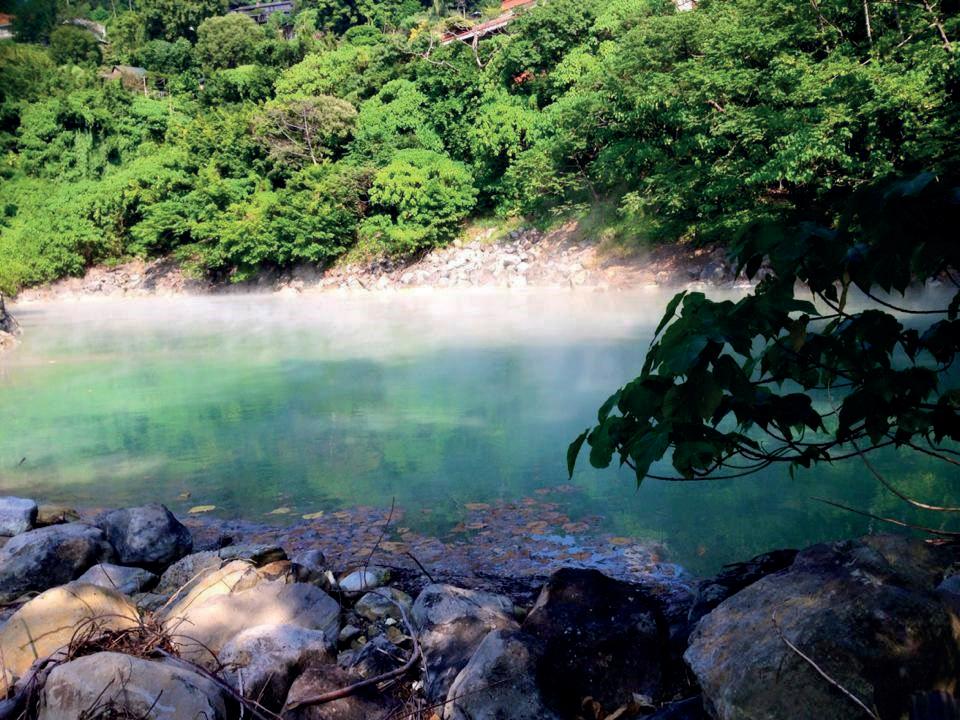


 By Jessie Fok
By Jessie Fok
文物博物馆则介绍了鲜为人知的 台湾原住民史。从前只知道台湾 女星张惠妹是原住民,却不知道 台湾的原住民早在远古时代年前 已进驻台湾,并有不下百个族 群,对历史有涉猎的同学必不能 错过此馆。
至于地热谷,我早有耳闻。因此 谷是北投温泉的发源地,周遭终 日烟雾弥漫,偶尔滑过脸书也会 看到地热谷的样貌。可是今次亲 临此地,才看到芦山真面目:山 绿水蓝,配以弥漫至半空的蒸 汽。虽然泉水散发着逼人的热 气,看着如此景色,也仿如置身仙境。
免费入场的温泉博物馆的确是个沧海遗珠。像日本 的澡堂一样,它保留了台湾日治时期遗留下来的日 式装潢,观光客必需赤脚内进。馆内除了可以看到 正宗的欧式浴池和女生浴室,还有让你了解台湾温 泉史的展览。逛累了,也可以到馆中央的榻榻米房 间稍作休息,并欣赏馆外风景。


走了一天路,回车站路上又看到各式各样的温泉旅 馆,便和旅伴随便挑选了一家高高兴兴的去浸温泉 了。北投之旅便止于此,此次台湾之行,我和旅伴 还去了淡水。有机会的话,必再次跟大家分享我和 旅伴在淡水看到的风光。




GUILD OF STUDENTS ‘O UTSTANDING OUTREACH 2015’! 16
Жизнь за границей
By Александр Кейвс
‘Life Abroad’ by Alexander Caves. Holidaying in Villena, a beautiful little town in Southern Spain that is, for once, largely untouched by tourists, I expected I would be attempting to get to grips with the basics of Spanish. Instead I found myself practising my Russian! Through my host, I met Natalia Zubritskaya, a Belarussian now living in Villena. We had the opportunity to conduct a small interview in Russian, during which I was able to ask her about her life as a Russian -speaker abroad. She has kindly also proofread this article.
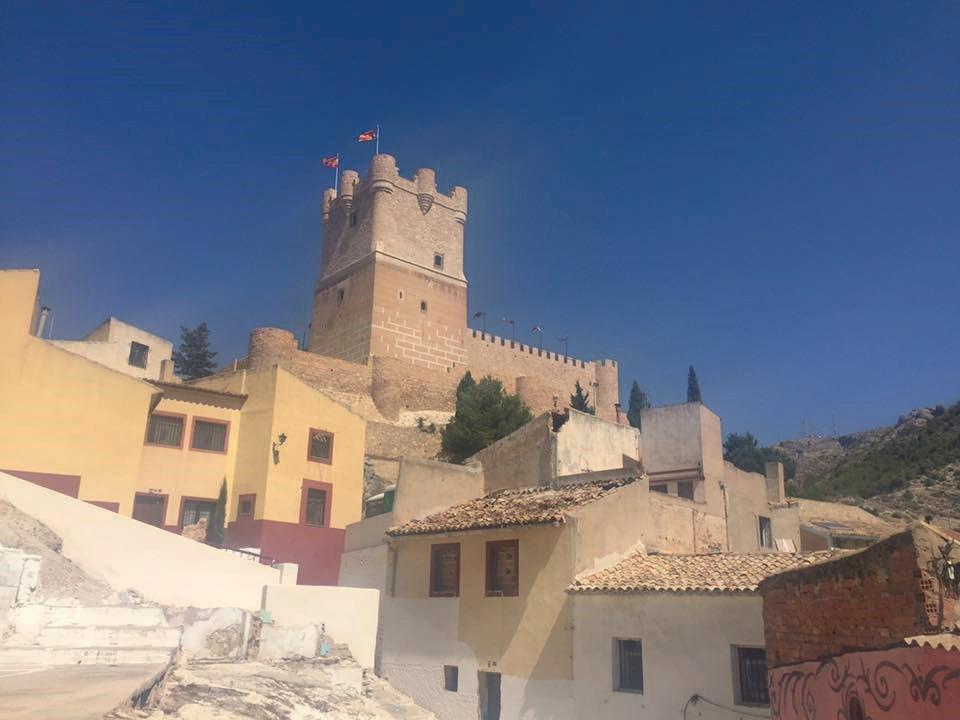
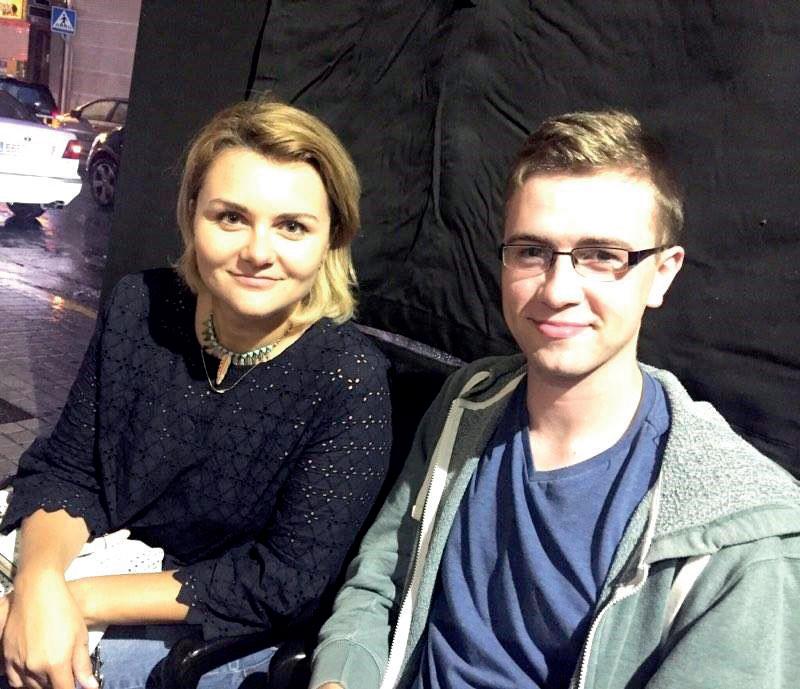
Мы часто думаем о том, какой бы была наша жизнь в другой стране. Многие читатели, возможно, думают о какой-нибудь русскоговорящей стране, но какова жизнь для русскоговорящего за границей?
Летом я съездил в Вильену : город среди низких гор в юго-восточной Испании. Как-то вечером моя хозяйка
пригласила меня встретиться с её подругой из Белоруссии, чтобы я мог попрактиковать свой русский.

Конечно я не могу упустить такую возможность! Кроме
того, эта встреча могла стать поводом для хорошей
статьи в «Лингвисте»!
Мы сидели под
тентом перед
«Кафе Реал» и
пили холодные
напитки, когда
пришла Наталия
Зубрицкая.
Когда я


познакомился с
Наталией, мы


почти всё время
говорили по-
русски, но


иногда, чтобы
остальные
понимали наш разговор, мы переключались на испанский или англиский, кроме того, так я мог лучше объяснить некоторые вещи, которые пока не знаю, всё -таки год изучения русского это не так уж и много. Мне было легко общаться с Наталией, потому что она тоже изучала испанский, английский и немецкий языки в университете! А ещё недавно, она начала немного учить о китайский, но это пока только хобби. Наталия живёт шесть лет в Испании со своим мужем; он – испанец, который работал в Белоруссии, когда они встретились. Перед жизнью в Испании, Наталия уже съездила четыре раза в эту страну, где она каждый год работала 40-50 дней в сопровождении детей. Их районов Белоруссии, наиболее пострадавших от радиации после аварии в Чернобыле.
Когда они впервые приехала в Испанию, ей вообще не понравилась местная еда. Всё ей казалось невкусным и странным, даже овощи и мясо. Тем не менее она подумала, что, возможно, она просто не привычна к этой еде и она продолжила пробовать местные блюда,
которые, в конце концов, ей очень понравилась. Конечно, ей нравится и белорусская еда, а ещё в Испании она начала пить кока – колу, которую в её стране почти не употребляют.
Наталия рассказывает об огромной разнице между её родиной и Испанией. На её взгляд самое большое отличие — это люди. В Испании люди очень простые и радушные, с ними легко работать и общаться, в основном все ведут себя так, как будто они твои друзья. Ещё одно большое различие — это важность семьи. Здесь родственные отношения, особенно кровные, всегда стоят на первом месте, поэтому семьи обычно очень сплоченные и детям сложно покидать родительский дом.
Без сомнения, Наталии очень нравится жизнь в Испании, потому что во многих отношениях жизнь здесь лучше, чем в Белоруссии. Особенно ей нравится тёплый и сухой климат, но, хочу отметить, пока мы разговаривали, шёл проливной дождь, и нам пришлось прятаться под тентом, правда, как оказалось, это был первый дождь за всё лето!
Естественно, Наталия скучает по своей семье, как все в этой ситуации. Она тоже редко говорит по -русски –только по скайпу со своей семьей. Она была очень рада поговорить, наконец, с другим человеком по-русски! Интересно, что когда мы закончили интервью, то начали разговаривать о языках по-английски, дело в том, что на всех сидящих за столом приходилось шесть языков!
Это было классно, познакомиться с Наталией, поговорить чуть-чуть по-русски и поспрашивать о жизни за границей – опыт, который ожидает меня в следующем году! Мы также договорились оставаться на связи, например, Наталия прочитала первый вариант этой статьи!
THEUOBLINGUIST.CO.UK 17
Alexander and Natalia at Café Real
Walking up to Villena’s castle
FROM KRAKOW WITH LOVE
When some people think of Poland, they think of vodka, grey skies, and grey, dominating buildings. Of course, whilst vodka might not be too difficult to come across in Poland, it is undoubtedly one of the most beautiful and dazzling places that someone could have the privilege of visiting! Upon visiting Krakow last February, I fell in love. So what is it exactly that gives this city its irresistible charm?
Food, of course. Whilst Eastern Europe may not be as renowned for its cuisine as Western Europe, there is a reason that more and more Polish restaurants are popping up throughout the country – such as the Karczma in Birmingham itself, of course! Barczcz, otherwise referred to as Polish red borscht, is a delightful combination of beetroot, parsley, garlic, and whatever else you like, really. It is typically presented as the first course during the Christmas Eve feast, accompanied with uszka dumplings, which are like
By Charlotte Simpson
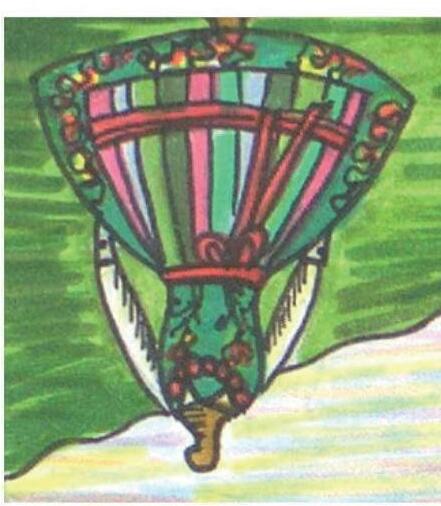


ravioli with mushroom filling. They’re perfect for cosy winter nights.
The architecture of Krakow is also like none other, as the immense scope of history it has experienced is reflected in the cobbled pavements, winding pathways, and street markets in St. Mary’s square. The Wawel area is home to a cathedral, a castle, and a giant stone dragon that keeps watch over the people of the city as they mill about the river below. Entering the courtyard of Wawel castle itself is like stepping 500 years back in time into the residence of Kings and Queens, whilst the fact that the castle was never fully rebuilt gives it an almost melancholy touch.
If you like wrapping up warm and going on adventures to somewhere a little bit different with a lot more to offer, then Krakow is the perfect place for you!

Българският Футбол By Boris

Здравейте мили българи и почитатели на Бългаската
култура!


Аз съм Борис Генов, главният писател за бьлгарската публикация за UoB Linguist Magazine от Guild групата в Унвеситета на Бирмингхам. Тази публикация е за месец нoември, част от новозапочнала и вече редовна серия от публикаций. Надявам се да ви харесва и да ви е от полза. Тези едиций са всъщто един полезен начин да запознаеме чуждестрани читатели с Българската държава.
В това издание, ние ще говорим за една много важна тема, предвид последните развития. Тази тема е Б ългарския футбол! Ние трябва да дадем много похвали на Лудогорец за класиране за груповата фаза на Шампионската лига, за втори път в своята история. Това е най-престижната лига в света. Собствениците на клуба, ръководството на отбора и играчите заслужават много поздравления. Преди две години, отборът постигн a успешни резултати срещу Реал Мадрид, Ливърпул и Базел.
 Genov
Genov


Минев гарантира първата победа на клуба в този турнир, срещу швейцарците. Вратарят Стоянов беше изключителен със своя ‘мъж на мачa’ представяне срещу испанците. Блясъкът на отбора кулминиpa с победа 2-1 над Ливърпул в София!

Сега отборът ще се опита да подобри успеха си в трудна с мачове срещу ПСЖ, Арсенал и Базел. Мачът срещу ПСЖ дава много увереност, че Лудогорец ще може да продължи поне за Лига Европа.
Да се надяваме, че успехът на Лудогорец в Европа, ще повиши конкурентоспособността на всички футболни клубове в Българската лига. По този начин таланта на играчите на разположение за националния отбор по футбол ще се увеличи. Точни инвестиции и духа на отбора ще бъд aт от ключово значение да възстановим Българския футбол отново на върха. На финалите за световното по футбол през 1994, България завърши 4-ти! Да се надяваме, че ще спечелиме голям турнир скоро!
Това е всичко за сега!


GUILD OF STUDENTS ‘O UTSTANDING OUTREACH 2015’! 18
HAPPY BIRTHDAY



THE UoB LINGUIST MAGAZINE TURNS FIVE! By Sarah Daniels







As of December 2016, The UoB Linguist will be celebrating its fifth birthday. The magazine has gone from strength to strength, and in its time has been awarded both the Outstanding Society and Outstanding Outreach awards from the Guild of Students.

The magazine was founded by Madeleine Kilminster, first chair of The UoB Linguist, in her first year of University. From an idea it soon blossomed into a reality, and Maddie was able to form a team of enthusiastic students into editors, proofreaders, and designers to help create the colourful, multi-sectional magazine we know today.

Maddie has certainly been able to use her experience with The UoB Linguist to her advantage, as she now works for Scholastic producing language learning magazines. She is ‘ so proud that it's become such a great success! It goes to show the dedicated, energetic and creative team behind it who have, each year, brought something new and allowed the magazine and society to go from strength to strength.’ She attributes The UoB Linguist ’s continued appeal to ‘the missing link that it fills [...] as the only international publication on campus, and the unique opportunity it offers to write/read foreign language articles.’
When Dominique Phipp took over as Chair of The UoB Linguist last year, she was able to not only continue Maddie’s great work, but expand the magazine further, introducing the ‘Meet the Team’ September edition to ensure the magazine hit the ground running at the start of the academic year. Dom wanted to become involved because the magazine inspired her, in her words; ‘ it is a collection of unique, personal stories and opinions by students at our very own campus. I love to read The UoB Linguist articles and
see how widely UoB students collectively have explored the world and made a mark on the communities they have encountered.’ Having graduated last summer, Dom is now undertaking a law conversion. She hopes to be a qualified solicitor soon, and considers her time at The UoB Linguist ‘invaluable’, and an ‘interesting and distinctive work experience.’
This year’s Chair, Kia Marie Hunt, has already been involved with The UoB Linguist for many years in various different roles. She started as a writer, was then the Portuguese editor, and became Creative Designer of the magazine last year while on her year abroad. Kia’s creative talents were able to give the magazine an exciting makeover, and she designed and illustrated the beautifully colourful section headers at the top of each page. She is very enthusiastic about the fantastic opportunities that this society provides, and to her, making sure it continues to flourish and thrive is of upmost importance. For Kia, being elected Chair this year is ‘the icing on the cake’ to her time at university, she is ‘happy to be following in the footsteps of such wonderful predecessors’, and she ‘ hopes to make them very proud.’
Overall, The UoB Linguist remains a truly exciting celebration of multiculturalism and student journalism. We are always looking to expand our language sections further, and continue growing our number of contributors. Don’t hesitate to get in touch with one of the team on Facebook if you want to help us develop our magazine, and simultaneously develop your own skills as a journalist/travel writer/ translator/ designer. In Kia’s words, ‘five years is only the beginning; may the legacy of the UoB Linguist live on!’
Below are the logos of companies and organisations that we would like to give special thanks to; we truly appreciate the enthusiasm they share with us for the magazine, and the continued support that they have provided us with.


We will be having an exciting event at ClinkBeer(see page 10) to celebrate TheUoB Linguist’sfifth anniversary, which will be hosted on Friday 2 nd December and you’re all invited! (Look out for details on our Facebook page)


































































































































































































































































































































































 By Matthew Bruce
By Matthew Bruce















 By Justine Francfort
By Justine Francfort

 By Sarah Wei
By Sarah Wei


























 By Emily Kidner
By Emily Kidner














 By Emily Darby
By Emily Darby




































 Genov
Genov













